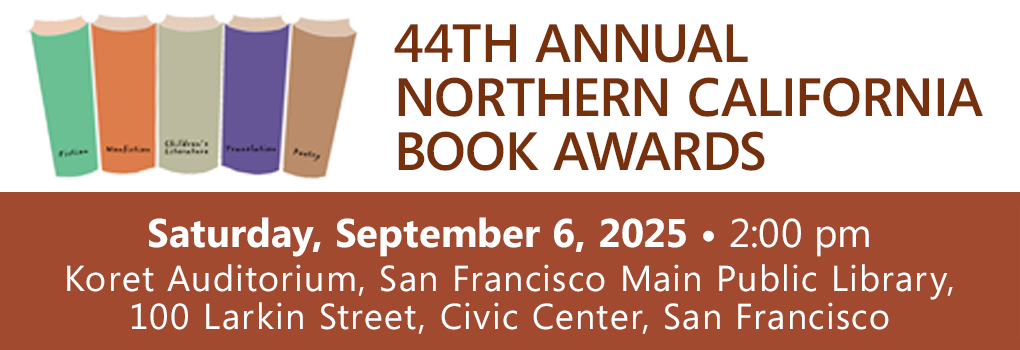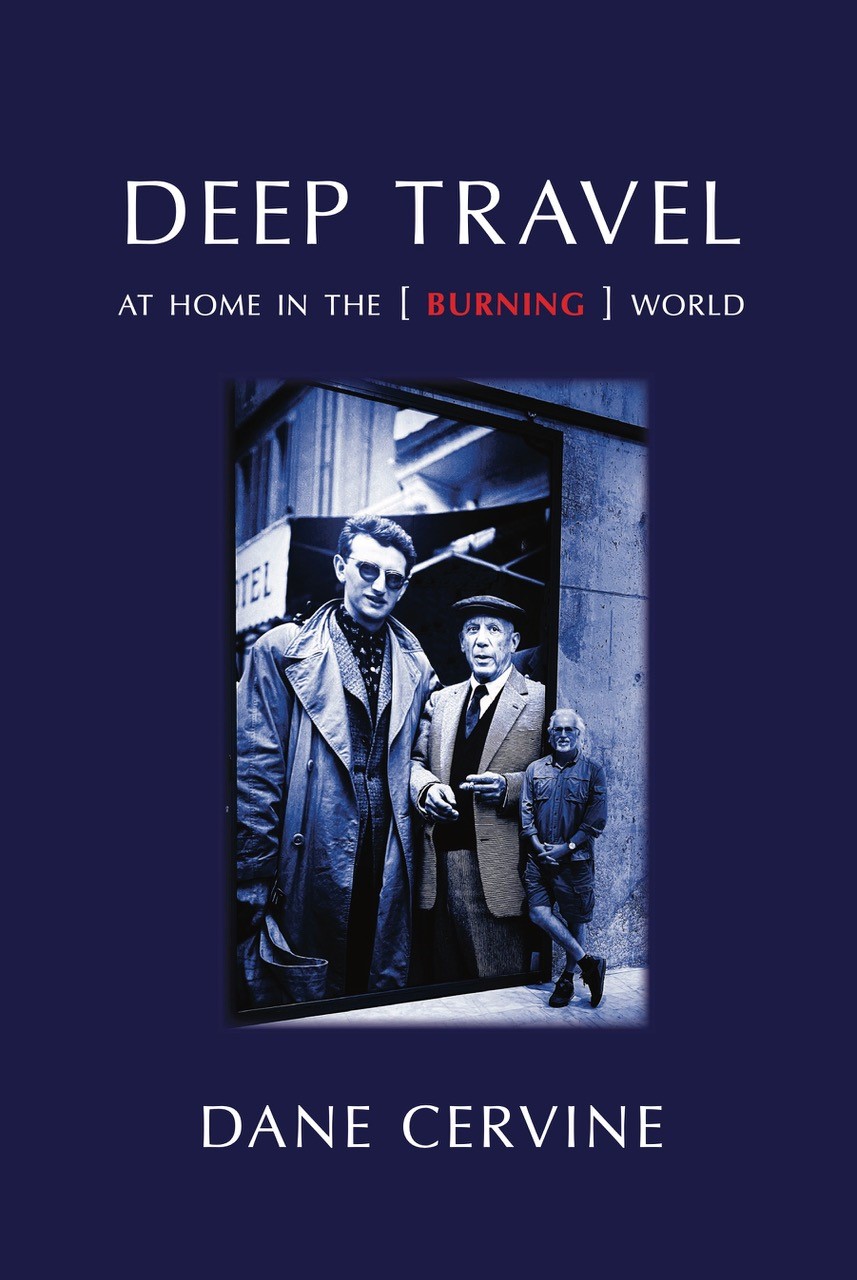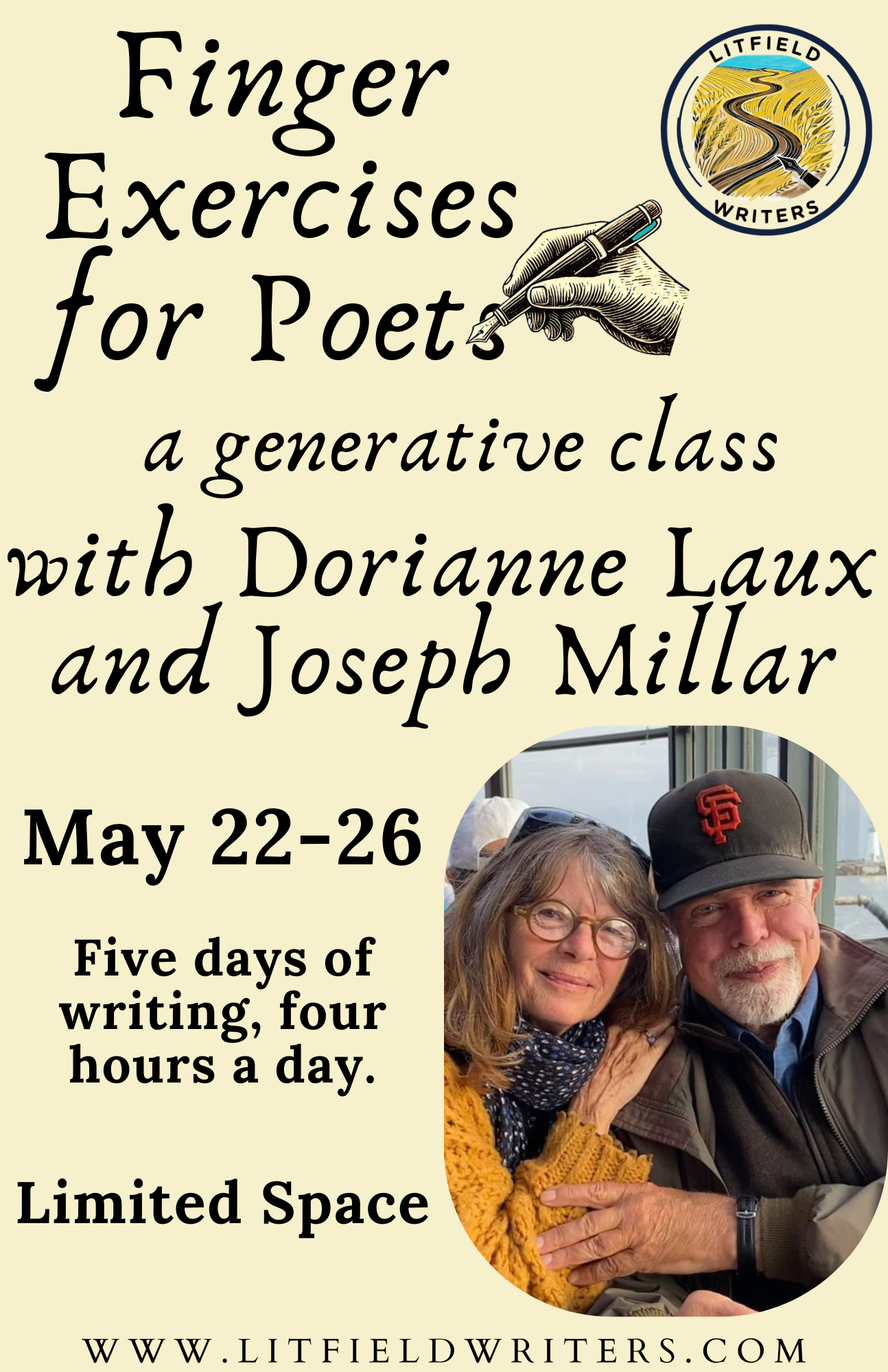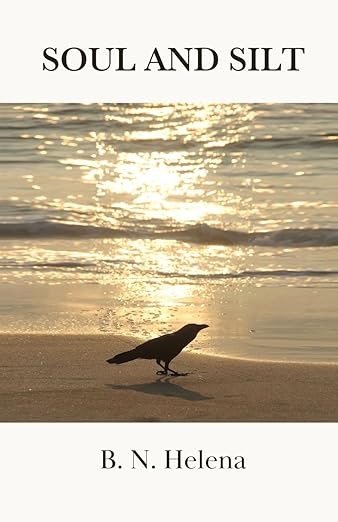
New & Noted
the new black, by Evie Shockley, Wesleyan University Press, Middletown, Connecticut, 2012, 128 pages, $14.95 paperback.
How Long, by Ron Padgett, Coffee House Press, Minneapolis, 2011, 91 pages, $16.00 paperback.
Flies, by Michael Dickman, Copper Canyon Press, Port Townsend, Washington, 2011, 86 pages, $16.00 paperback.
Address, by Elizabeth Willis, Wesleyan University Press, Middletown, Connecticut, 2012, 70 pages, $14.95 paperback.
Coral Road, by Garrett Hongo, Alfred A. Knopf, New York, 2011, 106 pages, $26.00 cloth. (The paperback edition will be released in April, 2013.)
you'd never have convinced me white men
would kill white men by the hundreds
of thousands freeing the negro—even as
the desperate, calculated means to purely
economic ends. exhaling outrageously,
he adjusted the vest around his barrel
chest and relaxing waistline, but war
came and, in its wake, amendments—
if not amends—were made. seven years
after its end, i was running for vice-
president of the union. no, the equal rights
ticket didn't win, and it only took
another one hundred and thirty-six years
to put a colored man in the white house.
i saw the steel in his eyes glimmer—
or glint. your president will be what
his country has taught him to be, will
do what his experience leads him to do.
don't mix up change with progress
The speaker is Frederick Douglass, ending the dramatic monologue "(mis)takes one to know one." No two poems in this book are very much like each other, but most of them, as here, unfold in an atmosphere of irony and controlled anger, as befits their subject, how black people live and what they can hope for in early twenty-first century America. This glinting Douglass is the very personification of that atmosphere, yet he's compelling, I think, in his own right. Another aspect this poem shares with the book as a whole is its wit, its verbal play, as in the title and the cogent oppositions of "amendments" and "amends," "change" and "progress."
The new black is also a book of formal play. Some of these forms are traditional, "a sonnet for stanley tookie williams," ghazal, sestina, haiku; others are seemingly of her own invention, "x marks the spot," whose words form an 'x' on the page and perform a complex, shifting chiasmus in meaning; "at the musée de l'homme," a kind of pattern poem whose words form a squat, vase shape; "explosives," where the words echo the poem's meaning in their wide, jumpy, 'exploded' spacing. Among these forms is a section entitled "the fare-well letters," a series of fourteen-liners, short-lined, in enjambed, jumpy breaks. That series ends the book, and here's the final one:
dear yesterday's zero,
you were a beacon of just-
is. an iron maiden carrying
a dark torch, you're off for
tomorrow's equation with a
long-fixed formula: the some
is greater. here's a new math,
maybe involving less division.
a chance to set a light out for
the territories. suited you to
a tee, to sink a whole in one.
e pluribus the same old unum.
today the game has changed.
new rules. you've met your
match. score, for now, love all.
That small poem stands on its own, but it takes on more meaning in the context of the whole series and even more as the sendoff poem for the whole book. The puns do powerful work, "just- / is" against 'justice', "the some is greater," a math with "less division," "whole in one," and the ending tennis reference of "love all." "…[S]et a light out for / the territories…" is a more involved pun on Huck's famous statement at the end of Huckleberry Finn, perhaps the central book to begin America's literary wrestling with its profound racial problem.
Like all puns, they flip back and forth between meanings, in this case mostly diametrically opposed, providing an energy of ambiguity, demanding of the reader a puzzling, a synthesis. "Love all," in its end position, is particularly salient here; it pulls us between its sports meaning of zero to zero, as in the poem's title, cold nullity, and 'now we're all going to love each other'. Evie Shockley is a commanding young poet who asks us to feel, asks us to think, and she ends her book at the peak of its tension, "new rules," new black, new game.
To supply a tentative answer to the question in Padgett's title (or is that title an ejaculation?), as a second generation New York School poet, he's been at it a very long time, since the sixties. But for me, he's still got his mojo, still provokes the shock of recognition:
That cup of Earl Grey
didn't perk me up.
What time is dinner?
It is approaching at the rate
of time, that is, one second per second.
I hear kitchen clangs and thumps.
What a pleasure to sit here and think
of oven mitts!
(from "Earl Grey")
The New York School, like all avant-garde or progressive movements, was trying to bust through artifice to the 'real'—obviously, a moving target. A main thrust of their effort was a poem that sounds like offhand chatting with the reader (or a third party, à la Personism), the more un- or anti-'poetic' the better. Padgett's contribution to this was a particularly genial sparkle and a gift for juxtaposition of the absurd and the quotidian so that each lights up the other. Dinner approaching "at the rate / of time, that is, one second per second" is a beautiful example. On the one hand, it makes the reader wait, too, makes time weirdly palpable, and on the other it kisses off pretentiousness. Then, in the next three lines he tunes us in to the mysterious goings-on in the kitchen and makes oven mitts suddenly as much fun as party hats. This is poetry, clearly, any new critic would have frowned upon.
Later on in the book, in a poem called "The Coat Hanger," he takes us on a quick tour of his poetic masters—as if we had any doubt who they might be—trekking along the poetic trail to where the New Yorkers stepped off into their chosen camping grounds: "…Whitman developed a bent for standing up straight / in his poems and proclaiming openness and Mallarmé / opened up his way of saying things in 'A Throw of the Dice' / and Pound opened up the page to bursts of history literature economics / and general whatever you want, Olson declaring that / the poem is a field of energy you can put anything in and Frank O'Hara / putting himself in that field that turned out to be his heart."
Padgett's title poem, a tour de force, does, indeed, seem to be a meditation on his poetic time on the planet, with, of course, many a swerve and digression which prove to be the continuously morphing point. He scatters bon mots casually along his way, "How Long, a city in China," "…poetry is something written by someone other than the poet / to someone other than the reader." And he ends with the kind of metaphoric conflagration that keeps his name brightly flaming:
It didn't say, "I will never rise again,
I will go far away and be a pinprick in the sky
among the billions of others, and you
will never know which I am
and I will never tell you."
And you will never answer back, "Sun,
I do not think you have that power:
only I do, and I will go away and be the sky."
Is that what is meant by "aesthetic distance"?
Say what?
It's as if the Panama Canal had been given aesthetic distance
by becoming a passageway in your brain
and you floated down it and came out
on the end that you started at!
Hunh?
I keep a ball of laughter inside that Hunh.
(from "How Long")
We will hold hands like children and sit on the floor in a large circle
with our legs crossed in the late style of
deathlessness
Waiting for
satori
What I wanted to show you
has disappeared
through a hole
in the back of my
head
What I wanted to tell you
If you pee your pants on the floor
you still have to sit there
on the spot where
you peed
A halo
seeping into the rug
(from "All Saints")
The suicide of an older brother haunts this book. His death creates a suck, a storm zone, the flung violence of Dickman's metaphor, his edge of menace. So the "late style of / deathlessness," the hole in the back of his head, that upside down holiness, a halo pissed out and endured. Yet within that anger, what we might describe as just sub-tantrum, there's striking subtlety and control. 'Late' deathlessness makes a sly oxymoron, and the whole phrase has a fine ring. Dickman creates an extremely effective tension and release in the pattern of his lineation against the white space. It would take a prohibitive amount of verbiage to do any justice to even this short excerpt, but let's take "A halo" for a representative example. Its isolation from "you peed" makes us wait, augments the surprise of the metaphor, its sacred sting; it also gives that urinary halo room to shine. Then the second space to "seeping…" lets it spread, begin to stink.
The children are trees
My brother waves from the branches with both hands
A seizure in the solid green air
Relentless resurrection
First I put on the mask that looks like my brother then I put on the
other mask that looks like my brother
My older monster
The light is puking pure white onto the ground
It can't help it
First it cuts off your hand
Then it cuts off your arm at the elbow
(from "Ralph Eugene Meatyard: Untitled")
Earlier in this poem the suicide has been directly broached, "In one wilderness my brother wears a plastic bag over his head and / leaps from the barn door"; above we have the ending. This excerpt again illustrates the tension of opposites that pulls the whole book wire tight, explosiveness against finesse, lyricism against horror, isolation and close focus against poetic continuity. To touch briefly on each of these, the explosiveness barely needs explication—we need only look at a phrase like "The light is puking pure white…" of such obvious power—but it's also a beautiful line in its rhyme and alliteration. And the excerpt is full of other sparks of finesse, "Relentless resurrection," for instance, alliterative again, which so succinctly expresses the haunting that drives the collection, the wit of "My older monster," to name two. There's real lyricism in lines like "The children are trees" or "A seizure in the solid green air,"—"seizure," there, being also witty and horrible. The horror aspect of this antipodes is, of course, a salient vector of the book, the light and its puking, say, its amputation of "your" limbs. The third dyad can be directly read, in these two excerpts and in the book as a whole: Dickman's lineation, spare, short-lined, zooming in on short phrases, even single words, to spotlight, surprise, emphasize never loses its tensile strength, never loses its drive. Each poem holds; the book presents a unified if ravaged world.
Let's close on one final pair of opposites. The poems virtually drip irony; everything that's said is understood as arch, as verbal screen to keep from shrieking or rampaging. Yet, as that last clause implies, Flies is also a book of deep, sincere emotion, of rage, of longing and sorrow.
Elizabeth Willis's language in Address is both brilliantly chatty and essentially nondiscursive. It proceeds by anaphora and listing, by surprise and non sequitur, makes you laugh out loud at the deftness of its wit, then dangles you over an emotive abyss, then stops you in your tracks before suggestive blankness.
You've Lost Your Card
Or it lost you before it hit the floor
Not everyone's thinking about
how to dress for evolution
It's not even our show
who barely speak as a species
Edges dissolve like a parade
with Florida looking like a gun
and Texas like a gun
And Oklahoma like a flag that pops out of a gun
on an episode of F-troop in my Oklahoma phase
before I knew what a military transport plane sounds like
touching down, its wheels bounce back with a little cry
or so they did before my brother was called up
But that was another war
before we knew what we know now
and before we forgot what we knew then:
the appearance of another flag
The appearance of a continent with handles
as if it could be lifted by a rhetorical gesture
above the big round heat of the rest of our lives
Another aspect of this collection immediately apparent on reading that poem is its political and cultural critique, if we can use a word implying methodical analysis for these sidewise, disjunctive flights. But contemporary America surely [r]evolves there, its size and military bent, parades, rhetorical gestures, know-nothingism. The two longest poems in the book, "This Is Not a Poem about Katherine Harris" and "Blacklist," are sociopolitical to their core. Here's a taste of the opening of the first, which obviously plays off Magritte's famous caption "This is not a pipe": "When I announced my support / for the 'Stop Sex Trafficking' Act / I dressed as tastefully as I could / without compromising my syndicated/ cleavage. When I announced / my support for this Act, I was not / denouncing sexual acts per se, / even when performed for political/ advantage. When I denounced / my support for sex trafficking, / I was flanked by a Republican / from Ohio with whom I was / not having sex and a Democrat / from New York, whose assets / I had eyed only briefly."
Willis centers though, for me, at any rate, as a pure poet. She works a magic doubleness into her poems; they both speak and exist on the page as linguistic objects, sculptures of words; they speak/move, and they cluster as still forms in the mind after being read. Look at this small, somewhat atypical poem:
Ballad
Sometimes I think I see the air
and all that was potential
acquires the aura of its birth:
the desert that became a bottle
that broke into a crown
that chose to seize its day
Because I couldn't stop
for breath, my legs outran
their shadow like a train
By which I mean a cornfield
long-legged, mechanical,
the rhythm of a film
in the middle distance
shooting the horizon
The earth is round
I keep wanting to go back, across an ocean, blue-gray and uncaring,
White cowlicks of waves at the continental shore, then the midsea combers
Like white centipedes far below the jetliner that takes me there.
And across time too, to 1920 and my ancestors fleeing Waialua Plantation,
Trekking across the northern coast of O`ahu, that whole family of first Shigemitsu
Walking in geta and sandals along railroad ties and old roads at night,
Sleeping in the bushes by day, ha`alelehana—runaways
From the labor contract with Baldwin or American Factors.
My grandmother, ten at the time, hauling an infant brother on her back,
Said there was a white coral road in those days, pieces of crushed reef
Poured like gravel over the brown dirt, and, at night, with the moon up,
As it was those nights during their flight, silver shadows on the sea,
It lit their path like a roadway made of dust from the Ocean of Clouds.
That's the opening of Garrett Hongo's title poem. It's not the beginning of the book, which is a separately sectioned "Prologue," "An Oral History of Blind-Boy Liliko`i," the vivid monologue of a fake-blind Hawaiian musician, flavored with his tangy pidgin, that sits sidewise, really, to the rest of the collection. But this quote from the poem "Coral Road" gives us a true feel for Hongo's project, a hall of memory, more vast for the length of his lines, a history, a genealogy of the Shigemitsus in Hawai`i. Intensely nostalgic, intensely romantic, but these are both based in facts of history and geography, as above, an assiduous sifting of details, and in the boldness and muscularity of his language, unafraid of its own sweep, of its "silver clouds," of its oceans in the sky.
His palatial book, moreover, doesn't move only backward and forward in time but puts various branches out sideways to chronology. First of these is the prologue mentioned above that, along with introducing us to the engaging "Blind-Boy," himself, gives a feel for the tourist hustle on the islands and the musical currents that were flowing in at some unspecified time in Hawai`i's past. But stoutest of these branches are the poems in the book's second section, "The Wartime Letters Of Hideo Kubota." Kubota, the speaker's grandfather, begins the section in an "adobe stockade" in Leupp, Arizona, having been "Swept up in the days after the attack on Pearl Harbor." (page 27) His fictional letter poems are addressed first to the 'prison poets' Miguel Hernández and Nâzim Hikmet, then to the character in Márquez's One Hundred Years of Solitude, José Arcadio Buendía, to the "Chinese Poets Detained on Angel Island," and last, poems on meeting Neruda and to "Maximus in Gloucester." Obviously Hongo is taking his poet's pleasure, a pleasure for the reader, as well, to reach out from family history to brother poets and writers: scope there to sweeten the bitterness of the Japanese wartime internment.
I'm going to skip to the end of the book, last two verse paragraphs to the last section, "Elegy," which is made up of a single long poem, "Elegy, Kahuku." I've, of course, barely sketched at the contours of this collection, but this ending gives a hint, at least, of the distances traversed:
When we die, Kahuku is where we still go, no matter if the body is laid under palms
And a russet sky at Angelus-Rosedale on West Washington in Central L.A.
When my cousin Herbert died at sixty this year,
His brother Neal, at the funeral, giving the eulogy,
Spoke of our time as children gamboling amidst the cane,
Sword fights with cane tassels, screaming "I am the Count of Monte Kahuku!"
As we pursued joy through the neighborly stones of the graveyard,
Lifting piglets from the stalls of the piggery
As if they were our own desperate children rescued from the sea.
Will I go too?
Amidst the black, spiny urchins in tinned buckets
My grandfather has gathered from the crannies and stones of the outer reef?
In the slips of wind between ironwood and eucalyptus
where Pine Boy became our foundling?
Tengoku it was called once, "The Domain of Heaven,"
And so it is whenever I say it is, sorrow like the silvered edge of a cloud,
Unmoored from karma, drifting on from memory to magnificence.
Richard Silberg is Associate Editor of Poetry Flash. His new book is The Horses: New and Selected Poems; his previous collection is Deconstruction of the Blues. He leads Poetry Flash's "The Dialogue of Poetry" workshop, and also teaches "Writing and Appreciating Contemporary Poetry" at Osher Lifelong Learning Institute, in Berkeley, California.
— posted December 2012








































 So Far So Good: Final Poems, 2014-2018
So Far So Good: Final Poems, 2014-2018  Abandoned Poems
Abandoned Poems 















 Mississippi
Mississippi 


















































































